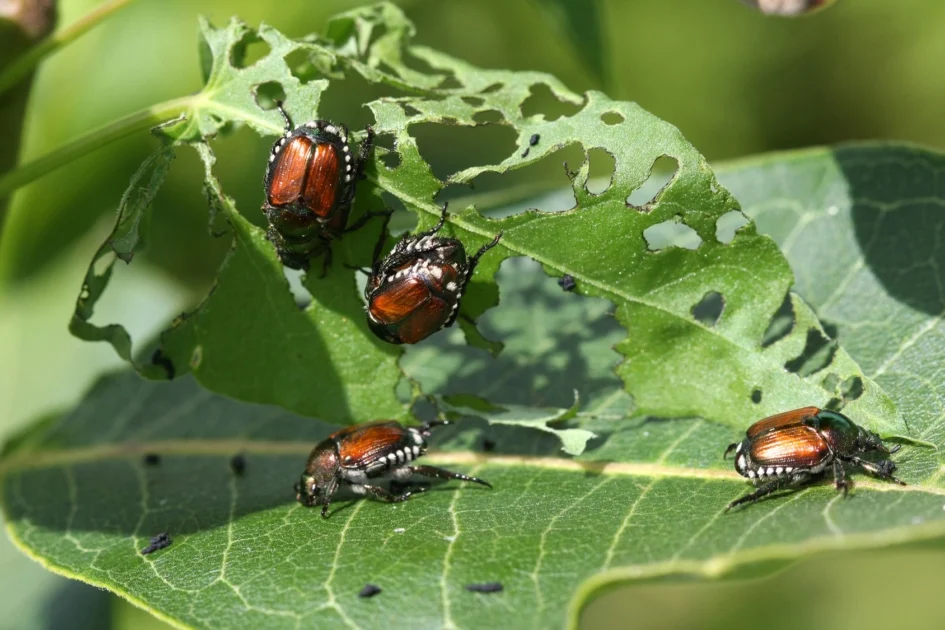As the weather warms up, garden pests wake up too—ready to feast on your plants before they even get a chance to grow! Stopping pests early in the season is the best way to prevent infestations that can damage flowers, vegetables, and fruit later in the year.
In this guide, you’ll learn:
✔ How to identify common spring garden pests
✔ Natural ways to prevent and control infestations
✔ Companion plants & organic sprays to keep pests away
Let’s protect your garden naturally and keep your plants pest-free all season long!
1. Why Early Pest Prevention Matters
Most garden pests lay eggs in early spring, and by the time you notice them, they’ve already done damage. Acting now prevents:
✔ Overwintered pests from multiplying.
✔ Leaf damage, stunted growth, and plant diseases.
✔ The need for harmful chemical pesticides later on.
💡 Tip: The best pest control is prevention—a healthy, balanced garden naturally resists infestations!
2. Common Spring Garden Pests & How to Stop Them
🐛 Aphids (Plant Lice)
✔ What They Do: Suck plant juices, causing curled leaves & weak growth.
✔ How to Prevent: Plant marigolds & nasturtiums nearby.
✔ How to Get Rid of Them: Spray with a mixture of water & dish soap or release ladybugs & lacewings.
🦗 Cutworms
✔ What They Do: Eat young seedlings at the base, killing them overnight.
✔ How to Prevent: Place collars around seedlings (use toilet paper rolls).
✔ How to Get Rid of Them: Sprinkle diatomaceous earth around plants.
🐞 Cabbage Worms & Caterpillars
✔ What They Do: Chew holes in leaves of cabbage, broccoli, and kale.
✔ How to Prevent: Cover plants with floating row covers.
✔ How to Get Rid of Them: Spray with BT (Bacillus thuringiensis)—a natural bacteria that kills caterpillars.
🦋 Whiteflies
✔ What They Do: Suck plant sap, causing leaves to yellow and drop.
✔ How to Prevent: Use yellow sticky traps.
✔ How to Get Rid of Them: Spray with neem oil or garlic spray.
🐜 Ants & Aphid Farms
✔ What They Do: Ants “farm” aphids for their sweet secretions.
✔ How to Prevent: Sprinkle cinnamon or coffee grounds around plants.
✔ How to Get Rid of Them: Mix equal parts vinegar & water and spray near anthills.
🦠 Fungal Gnats & Root Rot
✔ What They Do: Lay eggs in moist soil, damaging roots.
✔ How to Prevent: Let soil dry out before watering.
✔ How to Get Rid of Them: Add sand or cinnamon to the soil surface.
3. Natural Pest Control Methods
Instead of reaching for chemicals, use eco-friendly, natural pest control solutions.
3.1 Attract Beneficial Insects
Some insects eat pests and keep your garden naturally balanced!
✔ Ladybugs & Lacewings → Eat aphids, whiteflies, and mealybugs.
✔ Praying Mantis → Devours caterpillars & beetles.
✔ Bees & Butterflies → Pollinate plants and strengthen their immunity.
💡 Tip: Plant dill, fennel, and yarrow to attract these helpers!
3.2 Use Companion Planting
Certain plants repel pests naturally when grown together.
🌸 Marigolds → Repel aphids & nematodes.
🌿 Basil → Protects tomatoes from whiteflies.
🥕 Onions & Garlic → Keep aphids & carrot flies away.
🌿 Mint → Deters ants, flies, and cabbage worms.
💡 Tip: Avoid planting beans near onions or garlic, as they compete for nutrients.
3.3 DIY Organic Pest Sprays
If pests start appearing, spray plants with these natural solutions:
✔ Neem Oil Spray – Kills aphids, whiteflies, and fungal spores.
✔ Garlic & Chili Pepper Spray – Deters ants, caterpillars, and beetles.
✔ Soap & Water Spray – Suffocates soft-bodied pests like aphids.
✔ Baking Soda & Vinegar Mix – Prevents fungal diseases like powdery mildew.
💡 DIY Garlic Spray Recipe:
1️⃣ Blend 2 cloves of garlic with 1 quart of water.
2️⃣ Strain and add 1 teaspoon of dish soap.
3️⃣ Spray on affected plants once a week.
3.4 Protect Your Garden with Physical Barriers
✔ Floating Row Covers – Shield young plants from pests.
✔ Fine Mesh Netting – Blocks butterflies from laying eggs on cabbage.
✔ Mulching with Straw – Prevents soil-borne pests like cutworms.
💡 Tip: If you spot egg clusters on leaves, remove them before they hatch!
3.5 Improve Garden Health to Naturally Repel Pests
Healthy plants resist pests better!
✔ Water in the morning → Prevents fungal issues.
✔ Improve soil with compost → Strong plants fight pests naturally.
✔ Rotate crops yearly → Stops pest eggs from surviving in the same soil.
💡 Tip: Avoid over-fertilizing—too much nitrogen makes plants tastier to pests!
4. How to Know If Pest Control is Working
✔ Fewer holes in leaves & no sticky residue.
✔ Plants growing strong & healthy.
✔ More beneficial insects & pollinators around.
✔ No eggs or larvae under leaves.
💡 Tip: Keep a garden journal to track pest activity & what works best each season!
5. Common Pest Control Mistakes to Avoid
❌ Using pesticides too late → By the time you notice pests, they’ve already done damage.
❌ Not checking the undersides of leaves → Many pests hide underneath!
❌ Spraying in hot sun → Causes plant leaves to burn.
❌ Ignoring soil health → Poor soil = weak plants = more pests.
💡 Tip: Always spray early in the morning or late evening when temperatures are cooler.
Final Thoughts: Keep Your Garden Pest-Free Naturally!
By starting pest prevention early, using companion planting, beneficial insects, and DIY sprays, you can keep your garden healthy, balanced, and chemical-free!
💬 Which natural pest control method will you try first? Let me know in the comments! 💬
📌 Follow Chic Garden Whispers on Pinterest for More Gardening Inspiration! 🌿📌
